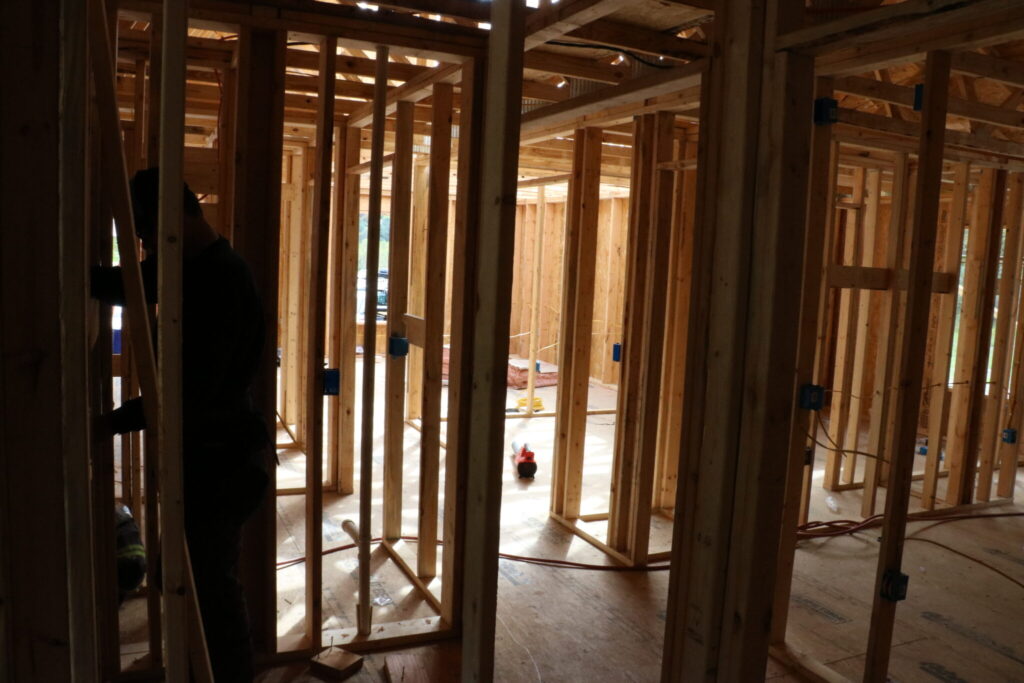FRANKFORT — Kentucky state lawmakers have been examining a nationwide problem that’s also growing in Kentucky: There’s not enough housing.
A task force established by the GOP-dominated legislature to better understand the state’s housing needs released a final report Tuesday. It details how local elected officials are confronting a problem exacerbated by a boom of jobs in some communities or natural disasters in others.

Wendy Smith, deputy executive director of the Kentucky Housing Corp., a self-supporting quasi-governmental agency that invests in housing projects, previously told the task force that Kentucky lacks 206,000 housing units statewide and that new research this summer shows the housing shortage could grow by over 80,000 units in five years if no action is taken. The shortage includes housing across the income spectrum, though lower-income Kentuckians in need of affordable housing could face the most acute pressure in the years ahead.

A consultant who led the research said the growing housing shortage could leave more Kentuckians burdened by high housing costs, forced to move in with family members or become homeless.
On Tuesday, Sen. Robby Mills, R-Henderson, a co-chair of the task force, said, “We do need to incentivize infrastructure. And building sites ready for folks to develop. … We’ve got to have places for people to live if we’re going to grow, and one of our biggest hurdles of growing our economy is housing.”
Among actions the legislature could consider to incentivize more home construction are tax credits, grants and revolving loans.
Mills pointed to nearby Republican-controlled states that are leveraging tax credit programs to encourage housing builders to build, while also noting that the chairs of the Kentucky legislature’s budget committees “aren’t big fans of tax credits.”
Ohio last year launched a $100 million tax credit program to incentivize construction of thousands of affordable housing units. In Indiana, lawmakers put tens of millions of dollars into a new loan program for local governments to fund infrastructure for residential housing.

Rep. Susan Witten, R-Louisville, the other co-chair, said part of the task force’s job going into next year’s legislative session would be to convince Republican colleagues that there is a “ROI” or return on investment for housing incentive programs.
- SUBSCRIBE: Sign up for our newsletters
When asked how to incentivize housing development in parts of the state that are economically challenged, Mills said he didn’t believe it was the government’s role to “force” housing developers to build in a particular part of the state.
“Housing is going to happen where it needs to happen,” Mills said. “I wouldn’t be interested in just trying to start a neighborhood in Ballard County or somewhere where people may not be at.”
The recommendations offered by various interest groups summarized in the report ranged from cutting down on zoning and planning regulations to providing more funding for the state housing trust funds, increases that housing advocacy groups have urged lawmakers to approve in recent years.

Rep. Lindsey Burke, D-Lexington, a member of the task force, told the Lantern she was pleased overall with the report and its findings. But she wondered if the Republican supermajorities would have the political will to enact some of the more costly proposals presented by the report, especially with a competing Republican priority of continuing to lower the state’s income tax.
“I don’t know how we can possibly offer tax incentives to builders while we’re cutting our taxes,” Burke said. “There just simply won’t be enough money to do the work of government if we’re cutting at all sides.”
Burke said the Democratic caucus would be putting forth its own proposals to tackle the housing shortage. She said she was interested in offering down payment assistance for first-time homeowners, finding alternative funding sources for the state’s housing trust funds and strengthening laws regarding tenants and landlords to improve the housing stock.
She worries that, instead, there will be more appetite in the legislature to “deregulate and force jurisdictions to have fewer safety protocols in place” in a “race to the bottom” that would harm Kentuckians. She said she prefers providing state funding to match federal dollars already offered to housing nonprofits as a better approach.
“I’m thinking about what do struggling Kentuckians need,” Burke said. “If we could make those kinds of investments, that would be very appealing to me to amplify the work that nonprofits are doing to make our communities safer and more livable.”
This article is republished under a Creative Commons license from Kentucky Lantern, which is part of States Newsroom, a network of news bureaus supported by grants and a coalition of donors as a 501c(3) public charity. Kentucky Lantern maintains editorial independence. Contact Editor Jamie Lucke for questions: info@kentuckylantern.com. Follow Kentucky Lantern on Facebook and Twitter.
Liam Niemeyer covers government and policy in Kentucky and its impacts throughout the Commonwealth for the Kentucky Lantern. He most recently spent four years reporting award-winning stories for WKMS Public Radio in Murray.






